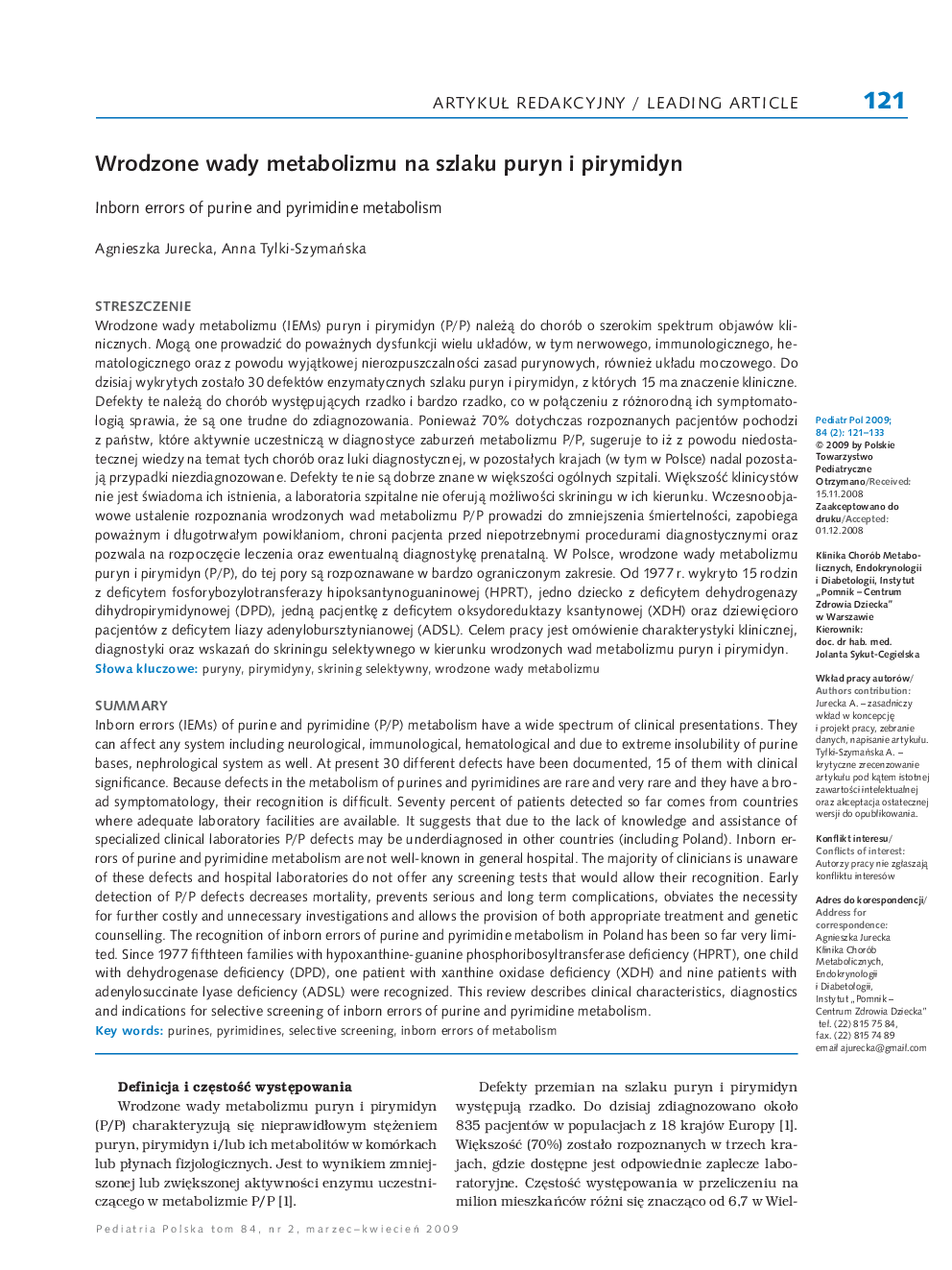| Article ID | Journal | Published Year | Pages | File Type |
|---|---|---|---|---|
| 2678262 | Pediatria Polska | 2009 | 13 Pages |
Abstract
Inborn errors (IEMs) of purine and pyrimidine (P/P) metabolism have a wide spectrum of clinical presentations. They can affect any system including neurological, immunological, hematological and due to extreme insolubility of purine bases, nephrological system as well. At present 30 different defects have been documented, 15 of them with clinical significance. Because defects in the metabolism of purines and pyrimidines are rare and very rare and they have a broad symptomatology, their recognition is difficult. Seventy percent of patients detected so far comes from countries where adequate laboratory facilities are available. It suggests that due to the lack of knowledge and assistance of specialized clinical laboratories P/P defects may be underdiagnosed in other countries (including Poland). Inborn errors of purine and pyrimidine metabolism are not well-known in general hospital. The majority of clinicians is unaware of these defects and hospital laboratories do not offer any screening tests that would allow their recognition. Early detection of P/P defects decreases mortality, prevents serious and long term complications, obviates the necessity for further costly and unnecessary investigations and allows the provision of both appropriate treatment and genetic counselling. The recognition of inborn errors of purine and pyrimidine metabolism in Poland has been so far very limited. Since 1977 fifthteen families with hypoxanthine-guanine phosphoribosyltransferase deficiency (HPRT), one child with dehydrogenase deficiency (DPD), one patient with xanthine oxidase deficiency (XDH) and nine patients with adenylosuccinate lyase deficiency (ADSL) were recognized. This review describes clinical characteristics, diagnostics and indications for selective screening of inborn errors of purine and pyrimidine metabolism.
Related Topics
Health Sciences
Medicine and Dentistry
Dermatology
Authors
Agnieszka Jurecka, Anna Tylki-SzymaÅska,
